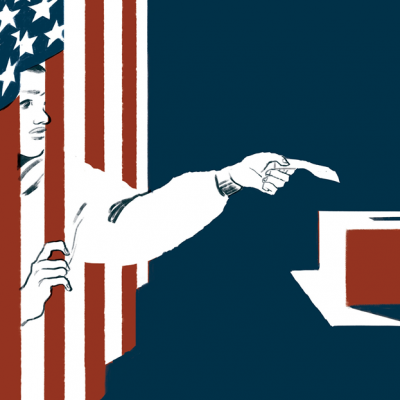
A new study conducted by professors Christopher Uggen, Ryan Larson, and Sarah Shannon and released by the Sentencing Project reveals that a record 6.1 million Americans are forbidden to vote because of felony disenfranchisement, or laws restricting voting rights for those convicted of felony-level crimes. The number of disenfranchised individuals has increased dramatically along with the rise in criminal justice populations in recent decades, rising from an estimated 1.17 million in 1976 to 6.1 million today.
Apparently, the United States remains one of the world’s strictest nations when it comes to denying the right to vote to citizens convicted of crimes. An estimated 6.1 million Americans are forbidden to vote because of “felony disenfranchisement,” or laws restricting voting rights for those convicted of felony-level crimes.
The study’s key findings include the following:
- As of 2016, an estimated 6.1 million people are disenfranchised due to a felony conviction, a figure that has escalated dramatically in recent decades as the population under criminal justice supervision has increased. There were an estimated 1.17 million people disenfranchised in 1976, 3.34 million in 1996, and 5.85 million in 2010.
- Approximately 2.5 percent of the total U.S. voting age population – 1 of every 40 adults – is disenfranchised due to a current or previous felony conviction.
- Individuals who have completed their sentences in the twelve states that disenfranchise people post-sentence make up over 50 percent of the entire disenfranchised population, totaling almost 3.1 million people.
- Rates of disenfranchisement vary dramatically by state due to broad variations in voting prohibitions. In six states – Alabama, Florida, Kentucky, Mississippi, Tennessee, and Virginia – more than 7 percent of the adult population is disenfranchised.
- The state of Florida alone accounts for more than a quarter (27 percent) of the disenfranchised population nationally, and its nearly 1.5 million individuals disenfranchised post-sentence account for nearly half (48 percent) of the national total.
- One in 13 African Americans of voting age is disenfranchised, a rate more than four times greater than that of non-African Americans. Over 7.4 percent of the adult African American population is disenfranchised compared to 1.8 percent of the non-African American population.
- African American disenfranchisement rates also vary significantly by state. In four states – Florida (21 percent), Kentucky (26 percent), Tennessee (21 percent), and Virginia (22 percent) – more than one in five African Americans is disenfranchised.
My opinion? It makes no sense why convicts are prevented from voting if they’ve been sentenced and punished. It’s a terrible violation of civil rights. Period. Please contact my office if you’re a convicted felon who has paid your debt to society and want your voting rights and/or firearms rights restored.






